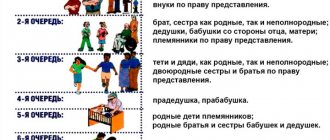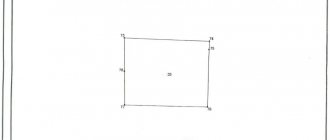In our last article, practicing lawyer and author of the column on deed of gift Oleg Ustinov, examined the procedure for symbolic donation of a gift, where one of the most important topics concerning this agreement was also touched upon, namely the prohibition of donation.
In this article, we decided to talk in as much detail as possible about what a ban on donation is, who is included in the category of persons who are prohibited from donating property, and other features of the restrictions established by the legislator in 2021.
Legal nature of donation
The concept and signs of donation . Donation is a provision through which one person (the donor) enriches another person (the donee) from his property and which, by the will of both parties, is done free of charge. In the above definition, three signs of donation are fixed.
1. A donation is a provision that comes from the property of the donor. Such a grant may consist of a transfer of ownership or claim, forgiveness of a debt, waiver of a limited property right, justification of a claim and permission to appropriate (Article 221 of the Civil Code), since it, together with the separation or seizure of possession, causes the transfer of ownership of the collected or mined things. A provision that someone makes through the gratuitous performance of work or the provision of a service, contrary to the contrary opinion of A.L. Makovsky, cannot be considered a donation, because it does not come from property, but from the labor force of the provider, which, although it serves as a source of property, does not itself belong to the property.
2. By giving, the donee must enrich himself. Enrichment can be expressed not only in an increase in assets, but also in a decrease in the liabilities of his property, which, in particular, results from payment by the donor or transfer of the donee's debt to the donor. There is no enrichment and, therefore, a donation if the grant fulfills the debt of the grantor, since the person in respect of whom such a grant is made receives through him only what is already due to him and what, in the legal form of the claim, already belongs to his property. There is no enrichment even when the provision, for example, the provision by the lender of an interest-free loan, justifies the counterparty’s obligation to repay the loan.
3. Provision at the will of both parties must occur free of charge. It is therefore not sufficient that the provider does not actually receive remuneration for his provision or that there is no agreement between the parties regarding such remuneration; on the contrary, the will of the parties must clearly be directed to the fact that the provision is not made either in fulfillment of a debt, or with the purpose of reimbursing or receiving a counter-provision or obliging the counterparty of the provision to do so. The expression of the will aimed at granting gratuitously, even if it is an implied action, must come from both the grantor and his counterparty. The legally required agreement between the parties on the gratuitous provision (paragraph 1, paragraph 1, Article 572 of the Civil Code) expresses the legal idea that no right, exemption from debt, or other unsolicited property benefit can be imposed on anyone else against his will.
An agreement on gratuitous provision is an agreement on its legal basis (causa donandi). Unlike other causa of grants, causa donandi can only be characterized negatively: it is present if, through the grant, no other legal goal is to be achieved than the notion of enrichment of the person in respect of whom the grant is made, contained in any grant.
In a manual or real gift, the agreement of causa donandi accompanies the transaction (for example, tradition or assignment) through which the grant is made, but is not an integral part of it. In this case, the provider and his counterparty add to the provision made by the provider without an obligation directed at it, a legal basis, in the absence of which it would be groundless (sine causa), as a result of which the subject of the provision could be reclaimed in accordance with the provisions of Chapter. 60 GK. It should be recognized that the view that with a manual gift an obligatory agreement (causal transaction) is concluded, which is immediately executed through an administrative transaction (for example, assignment of the donated claim), is erroneous. This view does not correspond either to the intentions of the donor and the recipient, or to the actual state of affairs.
In the case of a gift promise, which, since it is not a donation, is a unilateral contract of obligation, the agreement on causa donandi is included in the content of this contract. The donation here already lies in the justification of the demand, therefore, in the granting of the right. The grant derives from the property of the donor insofar as it grounds the debt to be performed from that property. The fulfillment by the donor of the promised provision, contrary to the inaccurate usage of paragraph. 3 p. 2 art. 574 of the Civil Code, which speaks of a “promise of donation in the future,” is not a “donation”, but the fulfillment of a debt.
Gift restrictions . The restrictions on donation established by law are expressed either in the absolute prohibition of donation (Article 575 of the Civil Code), or in the permissibility of donation only with the consent of a third party (clause 1, article 26, paragraph 3, clause 1, article 30, paragraph 1, clause 2 Article 37, paragraph 1 of Article 576 of the Civil Code).
By virtue of Art. 575 of the Civil Code, donations are not allowed, with the exception of ordinary gifts, the value of which does not exceed five minimum wages established by law: 1) on behalf of minor citizens and citizens recognized as incompetent by their legal representatives; 2) employees of medical and educational institutions, social protection institutions and other similar institutions, citizens receiving treatment, maintenance or education there, as well as spouses and relatives of these citizens; 3) civil servants and employees of municipal bodies in connection with their official position or in connection with the performance of their official duties; 4) in relations between commercial organizations.
Clause 1 of Art. 575 of the Civil Code prohibits donations by legal representatives on behalf of a minor or a citizen declared incompetent. A donation is considered void (Article 168 of the Civil Code) regardless of whether it consists of a disposal or a gift promise. A provision made in pursuance of the latter from the property of a minor or incapacitated person is not a donation and, therefore, does not fall under paragraph 1 of Art. 575 Civil Code. But such provision requires permission from the guardianship and trusteeship authority (paragraph 1, paragraph 2, article 37 of the Civil Code).
Real gifts and gift promises prohibited by paragraphs. 2-4 tbsp. 575 of the Civil Code are also void (Article 168 of the Civil Code). However, the invalidity of the corresponding gift promise does not entail the invalidity of the administrative transaction serving its execution (for example, a tradition or assignment). Therefore, an agreement on debt forgiveness produces the legal consequence desired by the parties even in the case when it is made in fulfillment of a promise given by a commercial organization in gift form to forgive the debt of another commercial organization.
Donation by a legal representative on behalf of a minor or a citizen recognized as incapable of property, the value of which does not exceed five minimum wages established by law, is possible only with the permission of the guardianship and trusteeship authority (paragraph 1, paragraph 2, article 37, paragraph 1, art. 575 Civil Code). Donations from minors aged 14 to 18 years (with the exception of donations made by them in accordance with subparagraphs 1 and 3 of paragraph 2 of Article 26 and subparagraph 3 of paragraph 2 of Article 28 of the Civil Code) and citizens with limited legal capacity require with the consent of the legal representative (clause 1 of article 26, paragraph 3 of clause 1 of article 30 of the Civil Code).
At the same time, his consent to gifts from these persons, in turn, requires permission from the guardianship and trusteeship authority (paragraph 1, paragraph 2, article 37 of the Civil Code).
The donation of a thing by a legal entity to which it belongs under the right of economic management or operational management requires the previous or subsequent consent of its owner, unless we are talking about an ordinary gift worth no more than five minimum wages established by law (clause 1 of Article 576 GK). For the donation of the specified legal entity, which consists of transferring a claim to the donee or releasing the donee from a debt, the prescription of paragraph 1 of Art. 576 of the Civil Code shall be applied by analogy. In the case of a donation of property by a commercial organization that is not its owner, to another commercial organization, paragraph 1 of Art. 576, and paragraph 4 of Art. 575 Civil Code.
Donation form . A manual, or real, donation, consisting of the transfer of a thing, can be made orally, with the exception of two cases when it requires writing: 1) the thing being transferred is immovable; 2) the transferred thing, the value of which exceeds five minimum wages established by law, is alienated by a legal entity (paragraph 1, clause 1, article 574 of the Civil Code). If a real donation consists of transferring a claim or transferring a debt of the donee to the donor, then it must be made in compliance with the requirements for the form, which are established respectively for the assignment of a claim (clause 1 of Article 389 of the Civil Code) and the transfer of debt (clause 2 of Article 391 of the Civil Code ). A real gift, consisting in forgiveness of a debt, is free in form.
For its validity, a gift promise needs to be in writing (clause 2 of Article 574 of the Civil Code). If a promise given as a gift is aimed at establishing the obligation of the donor to transfer real estate into the ownership of the donee, then it is subject to state registration (clause 3 of Article 574 of the Civil Code), which serves as a prerequisite for the promise to come into force. Since the state registration of the gift promise is not an element of the actual composition of this agreement, the latter is considered concluded not at the time of its registration, as stated in paragraph 3 of Art. 433 of the Civil Code, and at the moment the parties reach an agreement in the form required by law.
Lawyer's answers to popular questions
Can I donate an apartment, specifying as a restriction a ban on further sale to the recipient?
No, conditional donation is prohibited. Having become the owner, the donee has the right to dispose of the gift at his own discretion.
Is it possible to donate a house without donating a plot of land?
No, there is also a restriction: any real estate is donated only along with the land on which it is built.
I drew up a deed of gift for an apartment acquired jointly during marriage, and my husband signed the consent only a month later. Now he is going to challenge everything. Whose side will the court take?
Here everything depends on the specific circumstances, but with a high degree of probability the plaintiff will win the case, because consent is formalized before the deed of gift is drawn up, and not after.
I own a share in the authorized capital of an LLC, and I plan to give it to my son. Do you need the consent of the other founders?
Yes, consent will be required if this is provided for in the organization's charter.
Is it possible to donate a car if the bailiffs have imposed a ban on registration actions?
Theoretically, registration of a deed of gift is possible, but the donee will not be able to register the car until the debt is fully repaid.
Legal consequences of donation
Request for payment of a debt . Unlike a manual, or real, donation, in which the donor is not obligated to make a provision, a gift promise, being an obligatory contract, substantiates the request of the donee to the donor to make the obligated provision and the corresponding obligation of the donor to this requirement. The specified requirement and obligation arise with the conclusion of the contract, and if it is concluded under a suspensive condition or requires state registration - respectively, with the occurrence of the condition or from the moment of registration of the contract.
Simultaneously with the requirement to make an outstanding provision, the donee has the right to refuse to accept the gift, or, which is the same thing, to refuse the gift agreement (clause 1 of Article 573 of the Civil Code). Being by its legal nature a regulatory right to one’s behavior, it is exercised through the unilateral expression of the will of the donee addressed to the donor. The refusal must be written if the donation was made in the same form. In the case of state registration of a gift, the refusal is also subject to state registration (clause 2 of Article 573 of the Civil Code).
The exercise by the donee of the right to refuse the gift agreement entails the termination of the requirement, justified by the contract, to make the outstanding provision and the obligation corresponding to this requirement. If the donation was made in writing, then the donor is entitled to a claim against the donee for compensation for real damage caused to him by the refusal of the contract (clause 3 of Article 573 of the Civil Code).
Donor's responsibility . From the fact that paragraph 3 of Art. 576 of the Civil Code does not make reference to Art. 390 of the Civil Code, it follows that the donor is not responsible for the deficiency of the donated claim (for example, for the fact that it is burdened with the debtor’s objection about the expiration of the limitation period). In a similar way, the issue of the donor’s liability for the deficiency of the donated item must be resolved, since the item is donated in the condition in which it belongs to the donor. Therefore, the person who gave money, which, as it turns out later, turned out to be counterfeit, should not provide real money.
However, the donor bears tort liability for damage caused to the life, health or property of the donee due to a defect in the donated item, if this defect arose before the transfer of the item to the donee; The donor who, although he knew about the deficiency, did not warn the recipient about it (Article 580 of the Civil Code) is also not among the obvious ones. Prescription Art. 580 of the Civil Code finds appropriate application in cases of damage to the property of a citizen due to a deficiency in the claim presented to him, as well as in the event of damage to the property of legal entities due to deficiencies in the things or claims presented to him.
Arbitrage practice
Most often, persons whose consent was not obtained for the transaction turn to the courts to challenge the DD: spouses of donors, banks and other creditors.
If sufficient evidence is presented, deeds of gift are recognized as invalid, and this is confirmed by several real decisions:
- Decision No. 2-4051/2015 2-4051/2015~M-2910/2015 M-2910/2015 dated December 15, 2015 in case No. 2-4051/2015;
- Decision No. 2-3181/2016 2-3181/2016~M-2675/2016 M-2675/2016 dated April 26, 2021 in case No. 2-3181/2016;
- Decision No. 2-138/2019 2-138/2019~M-82/2019 M-82/2019 dated May 15, 2019 in case No. 2-138/2019.
Legal advice: to avoid problems, it is better to formalize everything properly right away, so that later you do not have to waste time and money on legal proceedings.
Refusal to fulfill a gift promise and cancellation of a donation
Refusal to fulfill a gift promise . The right of the donor, provided for by law, to refuse to fulfill the gift promise, or, which is the same thing, to refuse the gift agreement, is granted to him in the following cases: 1) if, after the promise given in the gift order, the property or marital status or health status of the donor has changed so much that fulfilling a promise under new conditions will lead to a significant decrease in his standard of living (clause 1 of Article 577 of the Civil Code); 2) if the donee, before fulfilling the gift promise, made an attempt on the life of the donor, the life of one of his family members or close relatives, or intentionally caused bodily harm to the donor (clause 2 of Article 577 of the Civil Code).
This right, which serves as a means of protecting the legally protected interest of the donor in terminating the request of the donee to complete the outstanding provision generated by the gift agreement and the corresponding obligation of the donor, is, by its legal nature, a protective right to one’s behavior. Its implementation occurs through the unilateral expression of the will of the donor in relation to the donee. Losses that arose to the donee as a result of the donor’s exercise of the right to refuse the gift agreement are not subject to compensation (clause 3 of Article 577 of the Civil Code).
Prescriptions Art. 577 of the Civil Code do not apply to a gift promise that justifies the donor’s obligation to make a provision, the cost of the item of which does not exceed five minimum wages established by law (Article 579 of the Civil Code).
Cancellation of donation . Under certain circumstances, the law allows the cancellation of a gift that has already been made (a real gift or a fulfilled gift promise). The revocation of a donation, which can be mediated by various subjective civil rights, consists of the annulment by the donor or the court of the agreement on causa donandi.
The donor has the right to cancel the donation if the donee has made an attempt on his life, the life of one of his family members or close relatives, or has intentionally caused bodily harm to the donor (paragraph 1, clause 1, article 578 of the Civil Code). In addition, the donor, by agreement with the donee, may reserve such a right in the event of the death of the donee (clause 4 of Article 578 of the Civil Code). In contrast to the right of cancellation provided for in para. 1 clause 1 art. 578 of the Civil Code, which refers to protective subjective civil rights, the right of the same name, which is mentioned in paragraph 4 of the same article, is of a regulatory nature. Being the right to one’s own behavior, both the protective and regulatory rights to revoke the donation are exercised through the unilateral expression of the will of the donor, addressed respectively to the donee or his heir.
Judicial revocation of a donation is possible in the following cases: 1) in case of intentional murder of the donor by the donee (paragraph 2, paragraph 1, article 578 of the Civil Code);
2) if there is a threat of destruction of the donated item, which represents great non-property value for the donor, as a result of improper handling of it by the donee (clause 2 of Article 578 of the Civil Code);
3) when making a donation by an individual entrepreneur or a legal entity in violation of the provisions of the law on insolvency at the expense of funds associated with his business activities, within six months preceding the declaration of such a person as insolvent (clause 3 of Article 578 of the Civil Code). In the first case, the claim to cancel the donation is due to the heirs of the donor, in the second - to the donor, in the third - to the creditors of the donor. Being a transformative claim, this claim binds its bearer not with the donee, but with the court. The statute of limitations for a claim to revoke a donation is three years.
With the cancellation of the donation, the grant by the donor becomes groundless (sine causa). Therefore, the gift can be reclaimed in accordance with the requirements of Chapter. 60 GK. If the subject of the provision was a thing, then the donee is obliged to return it to the donor (clause 5 of Article 578, clause 1 of Article 1104 of the Civil Code), and if it is impossible to transfer the thing back into ownership, to reimburse its value in money (clause 1 of Article 1105 GK).
When canceling a donation that consisted of transferring a claim, the donor (assignor) has a claim with the help of which he can achieve the reverse transfer of the assigned claim. What is the nature of this claim? According to A. Tuhr, it is a right directed against the assignee (done) to demand a reverse assignment. But if this were the case, then the reverse transfer of the assigned claim would be problematic, since the protective duty of the assignee to make a reverse assignment, corresponding to the claim formulated by A. Tur, cannot be implemented against his will by the enforcement authorities in the manner of enforcement proceedings. Satisfying the interest of the donor (assignor) in the reverse transfer of the assigned claim will not be bound by the state of mind of the donee (assignee) only if we recognize that the claim granted to him is nothing more than the right to demand from the court the transfer to himself of the claim belonging to the donee, i.e. .e. a transformative claim carried out by an act of judicial decision.
The cancellation of a donation that consisted of forgiveness of a debt entails the emergence of a claim by the donor against the donee to restore the forgiven claim. In this case, restoration occurs through a (contractual) re-justification of the demand of the same content and with the same or equivalent security. However, such a solution to the issue, which necessarily follows from the current legislation, suffers from a number of shortcomings. Firstly, it is completely unacceptable in cases where the donation consisted of forgiveness of a claim arising from an offense (for example, a claim for compensation for damage caused to property), since this claim cannot be justified through an agreement between the donor and the donee. Secondly, it does not take into account the fact that the donor and donee themselves cannot establish a previously existing security for the forgiven claim in the form of a guarantee or pledge, in which the mortgagor was a third party. Thirdly, it does not provide effective protection of the donor’s interest in restoring his financial and legal status, because the protective obligation resting on the donee to restore the forgiven claim cannot be carried out against his will by the enforcement authorities in the manner of enforcement proceedings. Taking into account the above, the legislator should abandon the construction of the “condition of forgiveness” by introducing a special rule into the Civil Code that would provide the former creditor with an unjustifiably forgiven claim with a transformative claim obliging the court to restore the forgiven claim with the security that existed at the time of its termination.
Prescriptions Art. 578 of the Civil Code on the abolition of donations do not apply to a donation consisting of a provision, the value of the item of which does not exceed five minimum wages established by law (Article 579 of the Civil Code).
Some useful tips
These 10 rules will make you a welcome guest:
- Always buy a gift in advance. This way your choice will be thoughtful.
- Take care of the packaging. It's better not to do it yourself.
- Give flowers when entering the house. Give the gift in the room in front of guests.
- A birthday gift should only be for the birthday person, a week for the whole family.
- Can't congratulate on the holiday? Call or write in advance.
- Can't come? Give the gift with a postcard through close relatives.
- Always sign who the gift is from. Anonymous surprises are only appropriate on Valentine's Day and April 1st.
- Write down all important dates in a notebook so you don't forget about anyone. Set reminders on your phone.
- Try not to give humorous gifts. They may offend.
- Don't tell us how long you were looking for a gift or how much it cost. Such an introduction is a demonstration of excessive pride.
Choose a gift with your soul, come up with an original congratulation, and share your excellent mood with the birthday boy. Then you will be welcome at any holiday.
Donation
Legal nature of the donation . A donation is understood as a donation of a thing or a right associated with encumbering the donee with the obligation to use the donated property for a certain generally beneficial purpose. The agreement between the donor and the donee regarding such an encumbrance must take place no later than their agreement on causa donandi. This obligation of the donee arises not with the achievement of an appropriate agreement, but only with the transfer of a thing or right to him. Therefore, the donee does not need to object to the unfulfilled contract.
A promise of gift, which substantiates the obligation of the donee to use the donated property in accordance with the instructions of the principal, is a bilateral, but not a mutual, agreement. It cannot be considered as a mutual contract, since the action owed by the donee (for example, support of a charitable institution) according to the parties is not equivalent to the provision made by the donor.
By virtue of paragraph 1 of Art. 582 of the Civil Code, donations can be made to citizens, medical and educational institutions, social protection institutions and other similar institutions, charitable, scientific and educational institutions, foundations, museums and other cultural institutions, public and religious organizations, other non-profit organizations, as well as the state, constituent entities of the Federation and municipalities. In this case, the subject of donation can only be a thing or a right.
Fulfillment by the donee of his obligation to use the donated property in accordance with the instructions of the principal sometimes turns out to be impracticable due to changed circumstances (for example, due to the cessation of the existence of a charitable institution to which the donee has pledged to support). If this is the case, then the donated property can be used for another purpose only with the consent of the donor, and in the event of his death or liquidation - by court decision (clause 4 of Article 582 of the Civil Code).
Cancel donation . Using donated property not in accordance with the purpose specified by the donor or changing this purpose in violation of the requirements of paragraph 4 of Art. 582 of the Civil Code gives the donor or his legal successor the right to demand the cancellation of the donation (clause 5 of Article 582 of the Civil Code). Being by its legal nature a transformative claim, this right is addressed not to the donee, but to the court and is subject to a three-year statute of limitations. The implementation of this right leads to the disappearance of the legal basis for the donation, as a result of which the donor or his legal successor, depending on the type of property donated, has either a claim against the donee for the delivery of the thing transferred to him (clause 1 of Article 1104 of the Civil Code), or the right to demand from the court a transfer to self-transferred demand to the donee.
Let's sum it up
Limitation of gifting implies the possibility of transferring property free of charge, but not everyone can act as a donee. If you do not take this restriction into account, the transaction will still be canceled in the future.
Property received as a gift must be re-registered to the new owner in Rosreestr. Such property is also subject to tax - state duty and personal income tax are paid in the amount of 13% of the estimated value of the gift object
How should the contract be drawn up?
The deed of gift for the apartment is signed by both parties and undergoes the state registration procedure.
The deed of gift for the apartment is drawn up in writing. You can have it certified by a notary if you want to insure yourself. Signing an agreement with a notary is convenient because if the document suddenly gets lost or deformed, you can request a duplicate.
After signing the donation agreement for housing, you need to register with the Federal Registration Service. For this purpose, a deed of gift and documents are sent. And as soon as the agreement is registered, the donee can consider himself the full owner of the property.
Award rules
Giving gifts is a real art, as you have to learn it. If you know the person well, then purchase a gift in accordance with his taste and preferences.
Special rules of delivery must be taken into account:
when choosing, it is necessary to take into account gender, age, status, personal relationships; before packaging, remove price tags, tags, receipts. If a guarantee is attached, then hand it over in a separate envelope after the holiday; should not be handed over in the corridor; beautiful design is important; be careful when presenting money; animals need to be discussed in advance; if it is not possible to attend the holiday, then give the gift the day before; It is not recommended to give expensive gifts to strangers; gifts made by hand will delight you. The main point of giving is considered to be a congratulatory speech for a couple of minutes. You can read a congratulatory poem and say a few pleasant words. The main point of giving is a congratulatory speech for a couple of minutes
You can read a congratulatory poem and say a few nice words
The main point of giving is considered to be a congratulatory speech for a couple of minutes. You can read a congratulatory poem and say a few nice words.
Important terms in the contract
An agreement can be considered correct and valid if both parties who participate in its signing have no claims against each other and, accordingly, have entered into an agreement with each other on all points of the document. These include the subject itself for which the contract is drawn up, the legality of the act being performed and the statements of each party to the transaction.
According to the lawyer, when concluding each contract, you need to pay attention to details. There are a lot of them in the gift deed
So she talked about each of them and explained what could happen if they were neglected.
First of all, according to the Civil Code of Russia, donation of things cannot be carried out:
- in favor of civil servants, persons holding municipal positions, employees of the Bank of Russia and others who occupy highly paid and prestigious positions and perform official duties;
- between commercial organizations and individual entrepreneurs. However, here it is worth emphasizing that the transaction is recognized as invalid only if the fact of the gift to the debtor is proven during the trial. Therefore, the court will allow the procedure to be completed as soon as it is established that the creditor is presenting the debtor with forgiveness of an existing debt as a gift.






